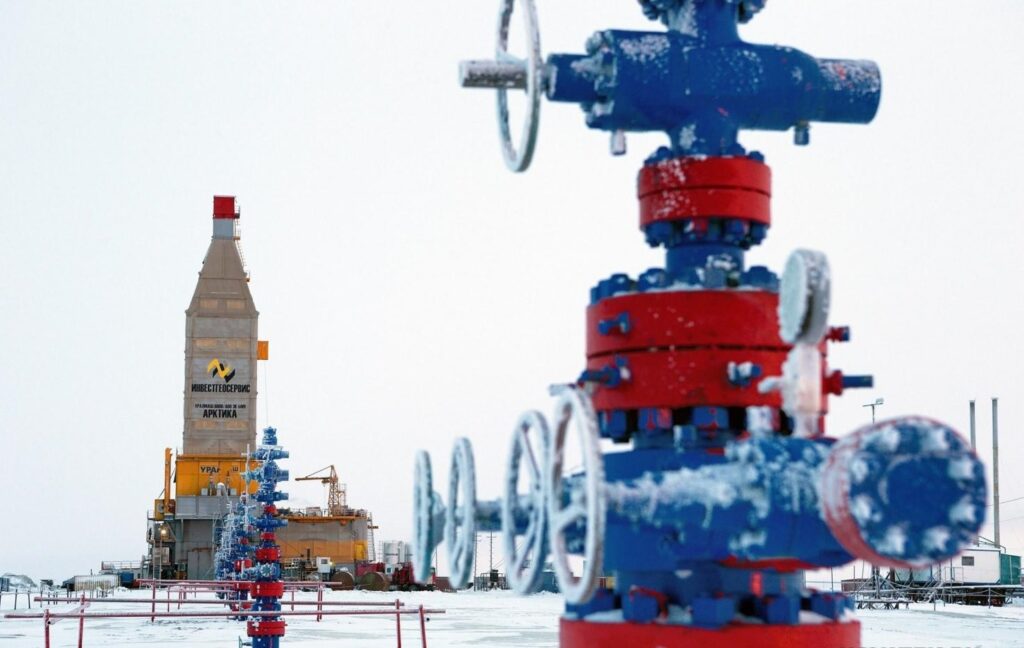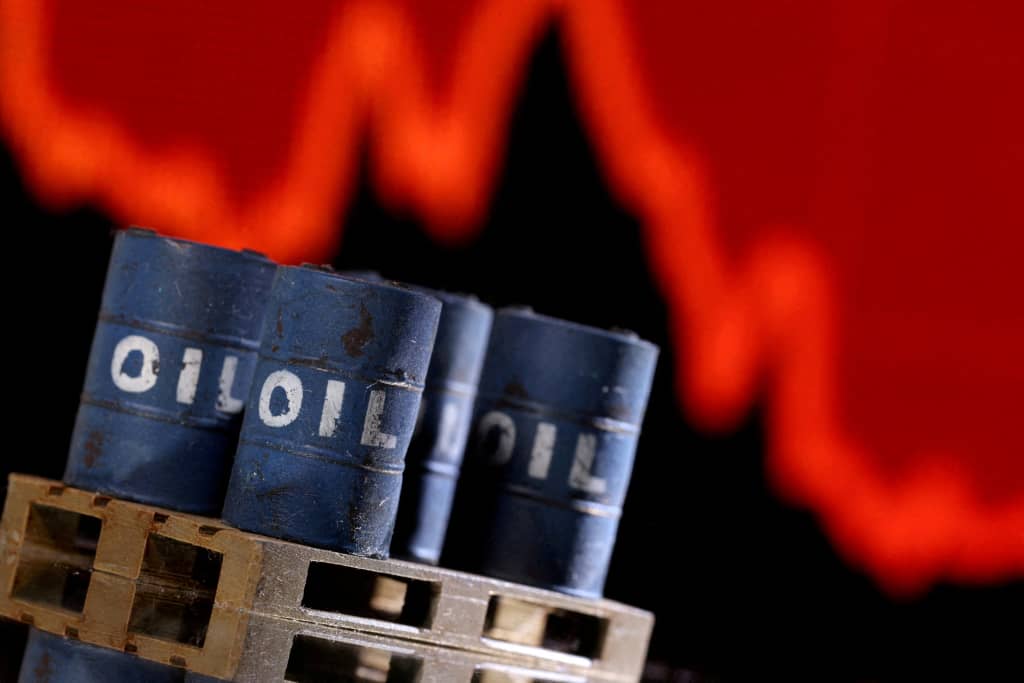Global oil markets reacted sharply on Thursday as prices surged more than 4% following the United States’ announcement of sweeping sanctions on Russia’s two largest oil companies, Rosneft and Lukoil, in what officials described as the most consequential move yet to curtail Moscow’s ability to finance its ongoing war in Ukraine.
Brent crude futures climbed 4.3% to $65.30 a barrel, while U.S. West Texas Intermediate (WTI) rose 4.4% to $61.06, extending gains from the previous session and reflecting growing concerns about supply disruptions from one of the world’s top energy exporters.
The sanctions, unveiled by the U.S. Treasury Department, mark a significant escalation in Washington’s economic campaign against Moscow and are expected to reverberate across global energy markets already strained by geopolitical tensions and a sluggish post-pandemic recovery.
“This decision marks the most material move to date by the United States to shutter the Russian war,” said Helima Croft, Head of Global Commodity Strategy and MENA Research at RBC Capital Markets.
“State-owned Rosneft and privately-owned Lukoil account for around half of Russia’s oil exports. Before this point, U.S. policy had been designed to avoid a serious Russian supply disruption.
“Immediately following the invasion, the White House worked to keep Russian oil on the market through sanctions carve-outs and price caps to allow barrels locked out of Europe to find a home in third markets such as India.”
Helima Croft, Head of Global Commodity Strategy and MENA Research at RBC Capital Markets

The new restrictions, analysts say, could have a profound impact on global energy flows, particularly in Asia, where India and China have absorbed much of Russia’s redirected crude since the onset of the war.
The sanctions are designed to sever these sales routes by cutting off access to Western shipping, insurance, and financing services.
U.S. Treasury Secretary Scott Bessent, in announcing the sanctions, said Washington’s objective was to cripple the Kremlin’s financial engine.
“Given President Putin’s refusal to end this senseless war, Treasury is sanctioning Russia’s two largest oil companies that fund the Kremlin’s war machine.
“We encourage our allies to join us and adhere to these sanctions.”
U.S. Treasury Secretary Scott Bessent
The move comes amid mounting frustration in Washington and European capitals over Russia’s continued defiance despite four years of economic sanctions and export controls.
U.S. officials insist that targeting the core of Moscow’s oil revenue which makes up roughly 25% of Russia’s national budget will significantly reduce its ability to sustain military operations.
Oil and gas income, which has fallen by about 21% year-on-year, remains Russia’s primary source of foreign exchange earnings.
Analysts note that the timing of the sanctions is deliberate, aimed at inflicting fiscal pressure as Moscow grapples with declining production and the costs of maintaining control over occupied territories in Ukraine.
More Sanctions on Russia

In Europe, the reaction was swift. On Wednesday, EU member states approved their own sanctions package against Russia, including a ban on Russian liquefied natural gas (LNG) imports.
European Council President Charles Michel hailed the decision as “a decisive step toward cutting off the financial oxygen feeding Moscow’s aggression.”
The combined transatlantic sanctions effort signals a new phase in the West’s strategy; one increasingly focused on Russia’s energy exports rather than incremental financial penalties.
Energy experts say this approach could prove far more disruptive than earlier rounds of sanctions, though it carries the risk of further volatility in global energy markets.
Markets are already bracing for potential supply shortages. While Russia’s exports to Europe have plummeted since 2022, the country still accounts for a substantial share of global oil and refined product supply, with Rosneft and Lukoil together producing nearly five million barrels per day.
“The market’s immediate reaction reflects deep uncertainty about how much Russian oil will ultimately come off the market.
“Even if some barrels continue to move through shadow fleets and informal trade channels, the financing and logistics challenges will likely push prices higher in the short term.”
S&P Global

Yet, the sanctions also present risks for the global economy. Higher oil prices could rekindle inflationary pressures just as central banks are signaling interest rate cuts to stimulate growth.
Emerging markets particularly in Africa and Asia, could feel the brunt of higher fuel costs, further straining fragile post-pandemic recoveries.
As traders digest the new measures, market analysts predict continued volatility in the weeks ahead.
With the United States urging allies to align with its sanctions and the European Union tightening its embargoes, the geopolitical and economic stakes are higher than ever.
For now, oil prices are climbing. and so too are global anxieties about the fragile equilibrium between politics and energy markets.
READ ALSO: BoG’s $1.15bn FX Injection Sparks Clash with IMF and World Bank Over Cedi Stabilization























